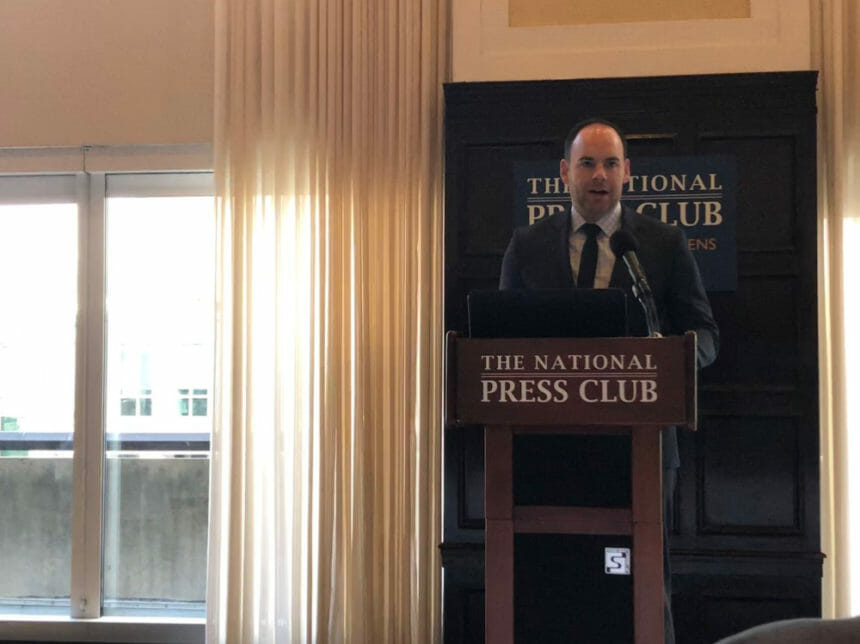The pharma industry knows that both consumers and the government want transparency about drug prices, so PhRMA took the issue into its own hands, its public affairs EVP contended on Tuesday.
That’s why on the same day Health and Human Services Secretary Alex Azar announced a proposal to require drugmakers to put list prices in DTC ads, PhRMA unveiled its own proposal that would use TV spots to direct patients to pricing information online.
“We didn’t want to be in a place where we were saying, ‘No we shouldn’t do anything,’” said Robert Zirkelbach, EVP of public affairs at PhRMA, at the Coalition for Healthcare Communication post-election conference on Tuesday. “We recognize there is a desire among consumers to learn about how medicines are priced and…more we can do to provide consumers with that information.”
As HHS and the pharma industry shake out the details of including drug prices in TV ads, PhRMA is looking at other proposals that could change how drugmakers do business. The group is keeping an eye on the international pricing standard pilot program, changes to incentives in the supply chain, and alterations to the six protected drug classes in Medicare Part B.
“A lot of proposals are based on a misunderstanding of how costs work in the system,” Zirkelbach said. “We launched the Let’s Talk About Cost campaign because we want to have this conversation. The current system is flawed and doesn’t work in the best interest of patients, so we’re focusing on the broader comprehensive look at pricing.”
That means PhRMA is asking lawmakers to look at the other actors in the supply chain, like pharmacy benefit managers or hospital systems, and apply the same level of scrutiny that the pharmaceutical industry receives.
The group is also hoping to remove government barriers to experimentation within the supply chain and drug pricing system, like the Trump administration’s proposal to lift the ban on kickbacks. That could mean a move to value-based care, or another system that hasn’t been tried, Zirkelbach said.
“The concept is that we need new and different ways to pay for medicines,” he said. “It could be outcomes measured or a money-back guarantee; if it doesn’t work, we don’t get paid. We need to adapt and test and try out new arrangements. Instead of the government saying it needs to be done like this, we need to create a system where there’s a lot of more experimentation and testing going on in the private market.”







